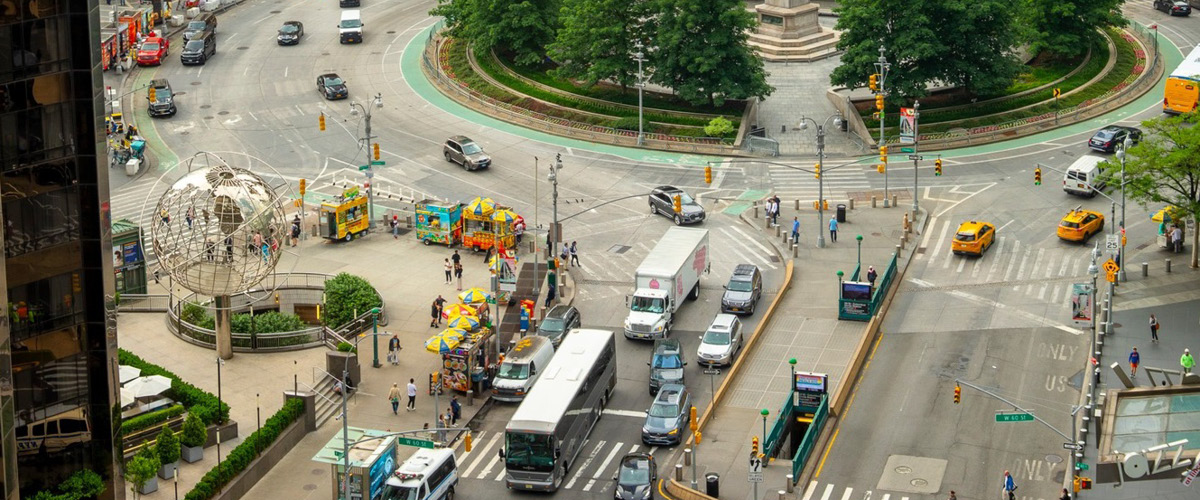
Our Car-Centric Culture is Hurting New Yorkers—It Needs to Stop Now
Donald Trump has promised to “terminate” New York City’s plan to impose a $9 toll on drivers entering certain parts of Manhattan on his first day back in office. He isn’t the only critic of congestion pricing; the plan has catalyzed rallies in New Jersey and Long Island and generated headlines across the country.
These criticisms are understandable. New York City’s congestion toll will impose a financial burden on those driving to the city. But the presence of so many automobiles has created tremendous costs beyond time lost in traffic. And it is long past time for New Yorkers—and city dwellers elsewhere—to reimagine our urban spaces.
“Congestion pricing presents an opportunity to rebalance these societal costs and create spaces that prioritize people over cars,” writes Evan Shieh, M.S. AUD, assistant professor of architecture, in an op-ed published in RealClear Policy.
On average, American cities sacrifice a staggering 22 percent of their land to accommodate parking, resulting in nearly seven parking spots for each of the 283 million cars registered in the United States.Imagine if even a portion of these spaces were freed up for pedestrians, parks, and affordable housing.
Then there are the environmental costs. A single car releases about 4.6 tons of climate-warming carbon dioxide annually. Asphalt-paved streets and impermeable parking lots also create stormwater runoff issues and make cities even hotter.
“Shifting more of these societal costs to car owners would allow cities to invest more in parks, public transit systems, and other shared amenities that enhance quality of life for all residents,” Shieh writes.
Cities with congestion pricing policies are already reaping these benefits. Stockholm implemented congestion pricing in 2006, while Singapore has utilized it for nearly 50 years. Both cities have used the revenues to expand transit networks, update transportation infrastructure, and fund other ambitious public works projects. American cities can achieve similar successes.
Congestion pricing may sound novel, but U.S. cities have taken steps to prioritize pedestrians before. In 2009, New York City leaders transformed highly congested areas—including Times Square and Herald Square—by reclaiming driving and parking lanes. Or consider the COVID-era “streateries” that popped up due to indoor dining restrictions and decreased automobile use. Spaces dedicated to parking became expanded outdoor dining rooms where consumers spent more, and small businesses earned more.
Congestion pricing provides yet another critical opportunity to disrupt the status quo and spark new social norms.
“New York City’s congestion toll may be an initial fiscal burden on those using cars to commute into the city. But the bias toward automobiles has exacted a far greater toll on the city’s residents for decades,” Shieh contends.
Read the entire op-ed.
This op-ed is part of a campaign designed to help generate awareness and build reputation for the university on topics of national relevance.
More News
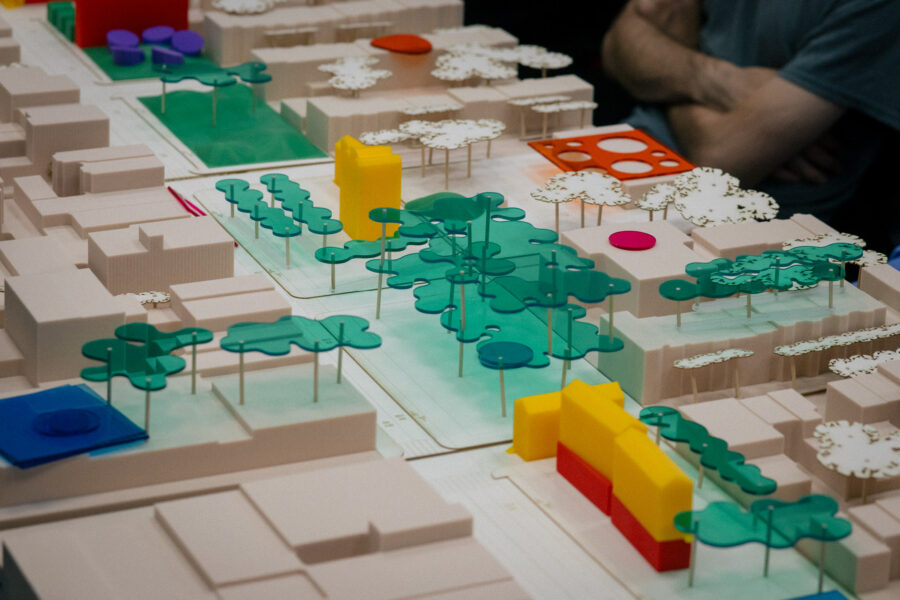
Community Building
Working on the Institute for Public Architecture’s Modeling Community Visions for a Future Without the BQE project, Marcus Wilford (B. Arch. ’16) turned to his alma mater for support.
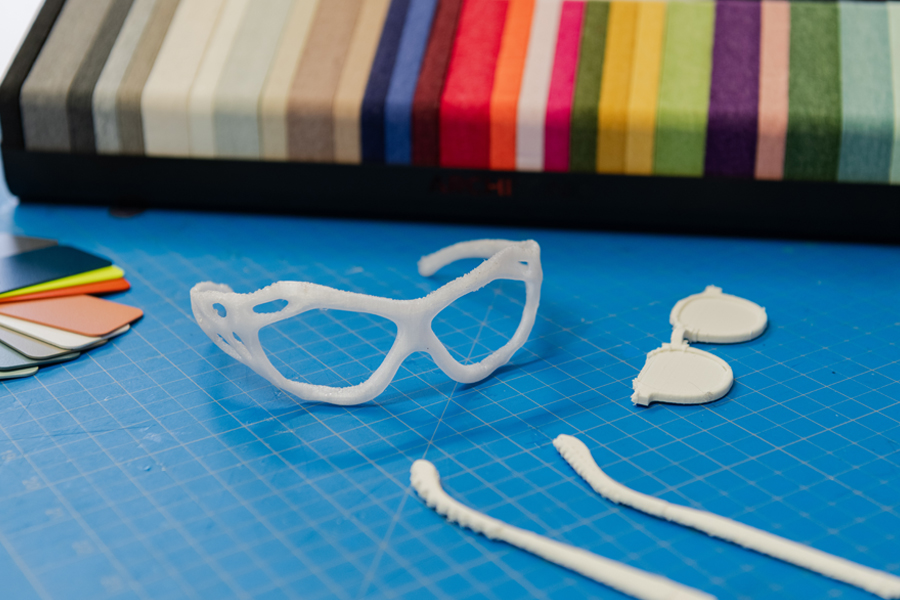
“Envisioning” More Inclusive Eyewear
As part of a collaborative initiative between New York Tech and the global eyewear company Marcolin, students from the School of Architecture and Design and NYITCOM teamed up to develop potential eyewear solutions for neurodivergent populations.
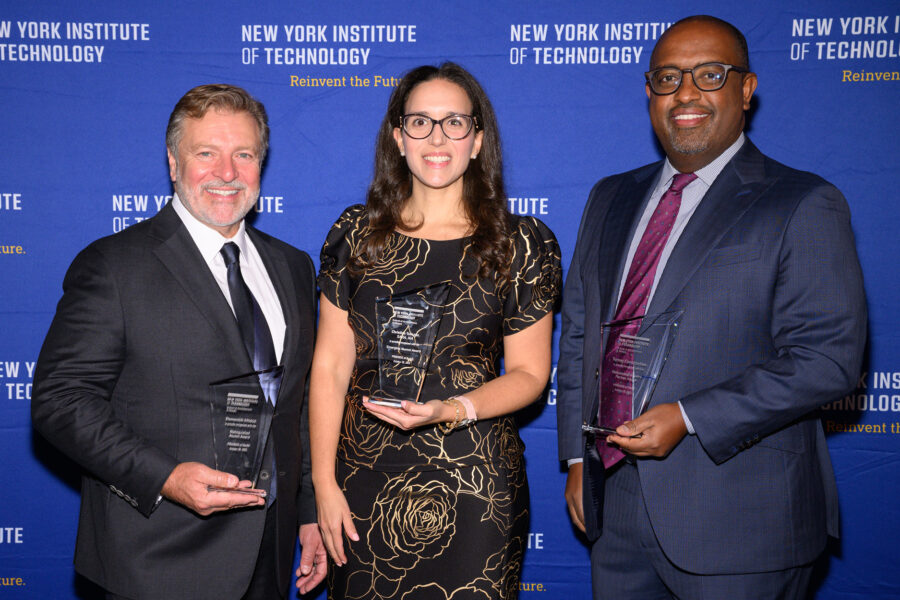
FRIENDS Sets New Fundraising Record
On October 30, the School of Architecture and Design celebrated its 17th Annual Alumni and FRIENDS Reception, raising a record-breaking $550,000 in support of student scholarships, technology upgrades, lectures, study abroad, and new initiatives.
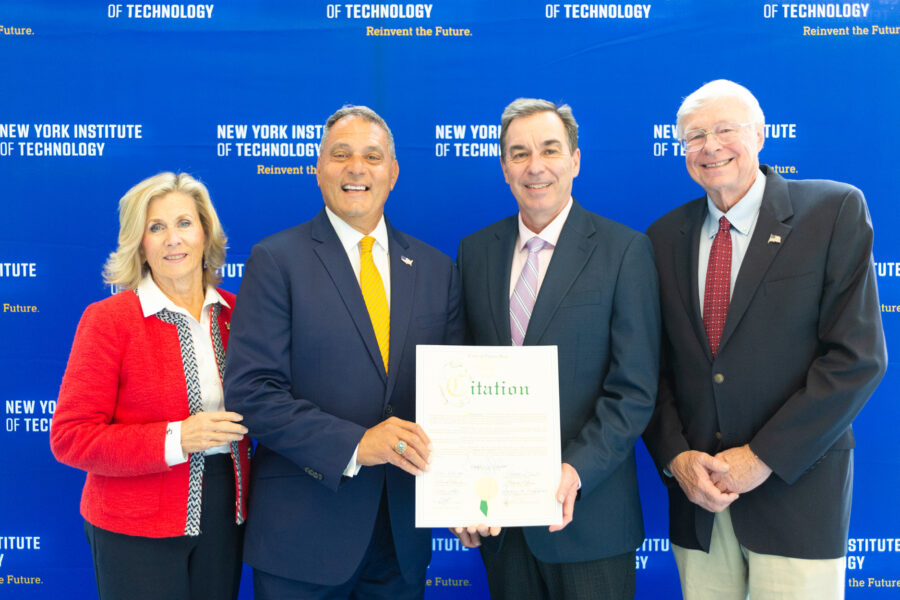
Startup Tech Central Officially Opens
Members of New York Tech and the local community gathered to celebrate the grand opening of Startup Tech Central, a resource for students to transform ideas into real-world impact.
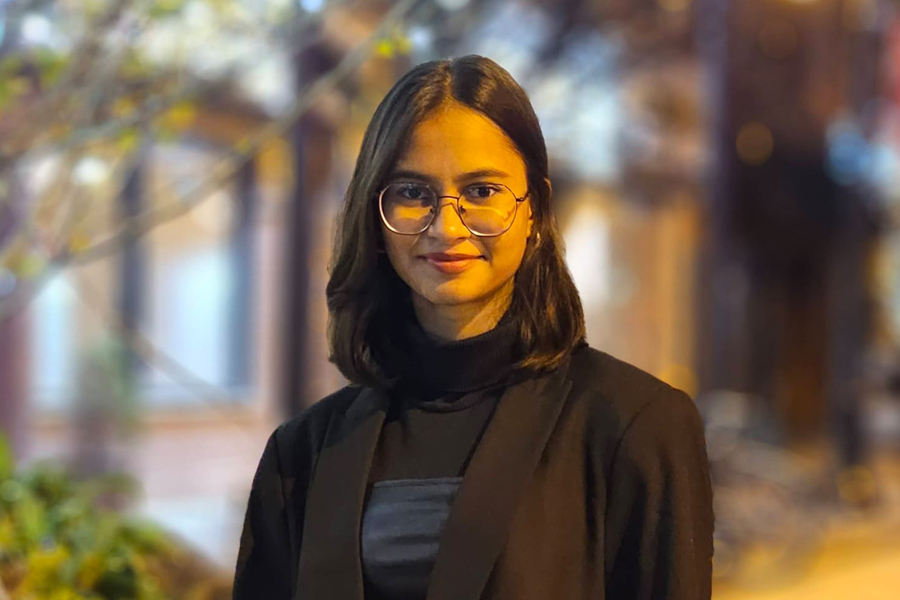
Intern Insight: Shikha Gandhi
Architecture student Shikha Gandhi’s internship with the New York City Department of Environmental Protection offered everything she hoped for as an aspiring sustainable and community-centered architect.
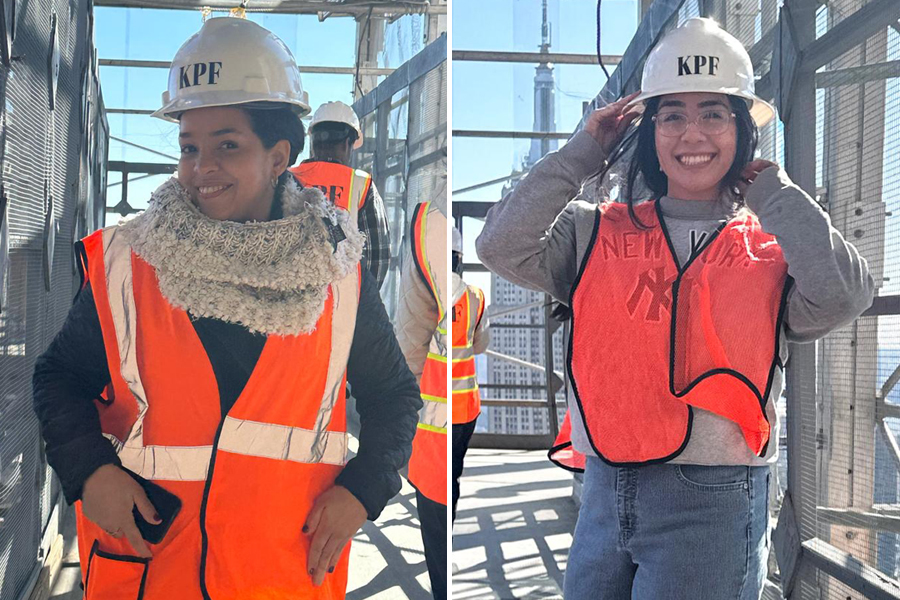
Intern Insight: It Takes Two
Graduate architecture students Yeisy Batista Perez and Angela Madrigal spent five months interning with the well-known, Manhattan-based architecture firm Kohn Pedersen Fox.